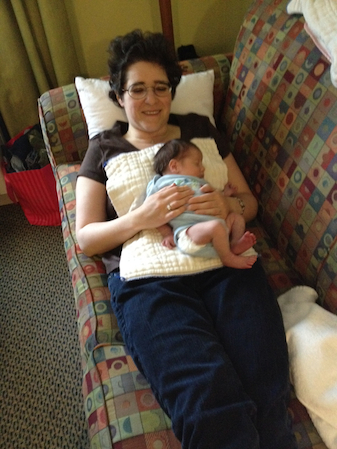Coming from a long line of clinically depressed women, I’ve often wondered whether my own tendency toward melancholy and dissatisfaction is primarily a biological problem or one that stems from underlying false beliefs. Do I need a pill, or a change of emphasis? The latter option is more my style. Contrary to the popular saying, I personally would rather be right than happy. In other words, I’d rather put up with some sadness while I investigate whether things are really as bad as I think they are. What you call dysthymia, I call the First Noble Truth.
Today’s poem on The Writer’s Almanac made me feel supported in that decision. Discontent is not always a fate to which we are condemned by our brain chemistry; it can be interrupted by simple everyday moments of redirecting our attention, starting with the few minutes it takes to read these lines.
To Waiting
by W.S. Merwin
You spend so much of your time
expecting to become
someone else
always someone
who will be different
someone to whom a moment
whatever moment it may be
at last has come
and who has been
met and transformed
into no longer being you
and so has forgotten you
meanwhile in your life
you hardly notice
the world around you
lights changing
sirens dying along the buildings
your eyes intent
on a sight you do not see yet
not yet there
as long as you
are only yourself
with whom as you
recall you were
never happy
to be left alone for long
